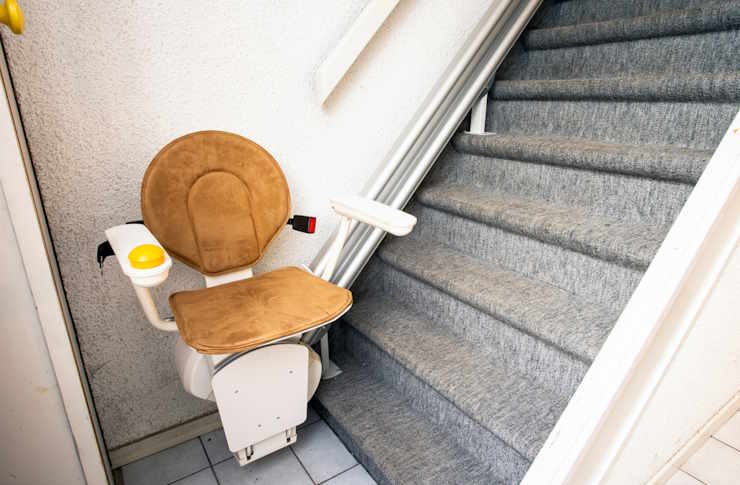Car Leasing Options and Strategies for USA Drivers
Car leasing has become an increasingly popular alternative to purchasing vehicles outright in the United States. With lower monthly payments, minimal upfront costs, and the ability to drive newer models more frequently, leasing offers flexibility that appeals to many drivers. Understanding the various leasing structures, from no-deposit arrangements to used car leases, can help you make informed decisions that align with your budget and lifestyle needs.

Leasing a vehicle provides drivers across the United States with access to reliable transportation without the long-term commitment of ownership. Whether you’re a first-time leaser or looking to optimize your current arrangement, understanding the landscape of leasing options can lead to significant savings and better terms. From flexible payment structures to specialized programs for different demographics, the leasing market offers diverse solutions tailored to various financial situations and driving needs.
Discovering Flexible and Affordable Car Lease Deals
Flexibility in car leasing comes in many forms, including adjustable mileage limits, varied lease terms, and customizable down payments. Many dealerships and leasing companies now offer lease agreements ranging from 24 to 48 months, allowing drivers to choose terms that match their anticipated vehicle needs. Shorter leases provide more frequent upgrade opportunities, while longer terms typically result in lower monthly payments. When searching for affordable deals, consider factors beyond the monthly payment, including the money factor (similar to an interest rate), acquisition fees, disposition fees, and any mileage overage charges. Comparing multiple offers from different manufacturers and independent leasing companies can reveal significant price variations for similar vehicles.
No-Deposit Car Leasing: Drive Now Pay Monthly
No-deposit or zero-down leasing programs have gained traction as they eliminate the substantial upfront payment traditionally required at lease signing. These arrangements roll all initial costs into the monthly payment structure, making it easier for drivers to access vehicles without depleting savings. While this approach increases monthly payments compared to leases with down payments, it preserves cash flow and liquidity. Some manufacturers offer promotional no-deposit leases on specific models to move inventory or introduce new vehicles to the market. However, it’s important to calculate the total cost over the lease term, as higher monthly payments can result in paying more overall. Additionally, consider gap insurance, which protects you if the vehicle is totaled and the insurance payout doesn’t cover the remaining lease balance.
Leasing Used Cars: Smart Savings on Quality Vehicles
Used car leasing, also known as pre-owned or certified pre-owned leasing, offers an alternative path to affordability. These programs typically feature vehicles that are two to four years old, have undergone manufacturer inspections, and come with extended warranties. Monthly payments on used car leases are generally 20 to 40 percent lower than new car leases for comparable models. Major manufacturers including BMW, Mercedes-Benz, Lexus, and Audi offer certified pre-owned leasing programs with benefits similar to new car leases. The key advantage lies in reduced depreciation costs, as the vehicle has already experienced its steepest value decline. When considering a used car lease, verify the vehicle’s history report, understand the warranty coverage, and confirm the remaining manufacturer warranty period to ensure adequate protection throughout your lease term.
Specialized Car Leases and Benefits for Seniors
Seniors often benefit from specialized leasing programs designed to accommodate fixed incomes and specific mobility needs. Some manufacturers and dealerships offer senior discount programs that reduce monthly payments or waive certain fees for drivers over 55 or 60 years old. Additionally, vehicles with enhanced safety features, easier entry and exit, and improved visibility may be available through senior-focused leasing initiatives. Credit unions and financial institutions sometimes provide preferential lease rates for senior members with strong credit histories. When exploring these options, seniors should consider lease terms that align with their anticipated driving patterns, as many older drivers log fewer annual miles than younger demographics. This can result in lower mileage tier selections and reduced monthly costs. Some programs also offer flexible early termination options, which can be valuable for seniors whose driving needs may change unexpectedly.
Mastering Your Car Lease: Budgeting and Negotiation Tips
Successful lease negotiation begins with understanding the vehicle’s capitalized cost, which is the price you’re negotiating, similar to the purchase price in a sale. Research the manufacturer’s suggested retail price and current market incentives before visiting dealerships. The money factor, expressed as a decimal, determines your financing cost and can often be negotiated, especially for customers with excellent credit scores above 720. Request a detailed breakdown of all fees, including acquisition fees (typically $395 to $895), documentation fees, and any dealer-added charges. Calculate your total lease cost by multiplying the monthly payment by the number of months and adding all upfront costs. Compare this figure across multiple offers to identify the best value. Consider timing your lease signing during end-of-month, end-of-quarter, or year-end periods when dealers are motivated to meet sales quotas and may offer more favorable terms.
Real-World Cost Comparison of Leasing Options
Understanding the financial landscape of car leasing requires examining actual market offerings. Below is a comparison of typical lease structures from major providers, based on mid-range sedan models with similar features and 36-month terms.
| Leasing Type | Provider Example | Monthly Payment Estimate | Down Payment | Total Estimated Cost |
|---|---|---|---|---|
| New Car Lease | Toyota Financial Services | $320-$380 | $2,500-$3,500 | $14,000-$17,000 |
| No-Deposit Lease | Honda Financial | $420-$480 | $0 | $15,120-$17,280 |
| Used Car Lease | BMW Financial Services CPO | $280-$340 | $2,000-$3,000 | $12,000-$15,000 |
| Senior Program Lease | Various Credit Unions | $300-$360 | $2,000-$2,500 | $12,800-$15,000 |
Prices, rates, or cost estimates mentioned in this article are based on the latest available information but may change over time. Independent research is advised before making financial decisions.
Making Informed Leasing Decisions
Navigating the car leasing landscape requires careful consideration of your financial situation, driving habits, and long-term transportation needs. By exploring various leasing structures from no-deposit options to used vehicle programs and senior-specific benefits, you can identify arrangements that maximize value while minimizing costs. Remember to read all lease agreements thoroughly, understand mileage limitations and wear-and-tear policies, and maintain comprehensive insurance coverage throughout your lease term. With proper research and strategic negotiation, car leasing can provide an affordable and flexible transportation solution that adapts to your evolving needs without the commitment of vehicle ownership.




